- Home
- Blake Pierce
Blake Pierce - Kate Wise - 5 - If She Fled Page 16
Blake Pierce - Kate Wise - 5 - If She Fled Read online
Page 16
piano wire.”
With that comment in the air, they all looked at the piano with the same
sort of caution Bannerman had given it moments ago.
CHAPTER EIGHTEEN
The medical examiner in charge of the Hopkins and Hix cases had just
started digging into the Lowell case. Meredith Lowell’s body was still on his
table but he seemed hesitant to allow Kate and DeMarco into the room.
“There are things I still don’t quite understand about the death,” he said.
He was a rotund and rather short man named Fenn. Kate decided right away
that she liked him simply because of his respect for the dead. She had
encountered far too many MEs and coroners who were more than happy to
show off the latest body.
“Like what exactly?” DeMarco asked.
They were standing outside of the examination room, Fenn standing
directly in front of the door like some stout sentry.
“Well, for one, what the hell was used to strangle her. It has definition to it
that I’ve just never seen before.”
“Then maybe we can help,” Kate said. “I have a theory I’m working on
that could not only answer your question but, if I’m right, can probably make
it much easier for us to find a killer.”
Fenn looked back to the door and then sagged his shoulders. “Okay, it’s
fine. Come on in. I’ve got the files on Marjorie Hix and Karen Hopkins up on
my tablet, too. The wounds were so similar, I had to at least assume they
were all connected.”
“We’re certain they are,” Kate confirmed.
The three of them stepped into the examination room where Meredith
Lowell’s body lay face-up on Fenn’s table. There had been no autopsy yet,
though most of the lights over the table had been directed to the wounds on
her neck.
Kate stepped up to the table with a great deal of respect; she had long ago
come to the conclusion that you never truly got used to looking over a dead
body with a critical eye. Even those with the most professional of approaches
must also remember that this person had once been alive—a living, breathing
mother or brother or sister or father. She noticed that once Fenn saw her
tentative attitude toward Meredith’s body, he seemed to relax.
“What was your first thought?” Kate asked him.
“Honestly? A few years back I had a case where some guy strangled his neighbor to death with that plastic-looking weed-eater line. It looked quite
similar to what we see here on Ms. Lowell’s neck.”
“Are the abrasions on the necks of Hix and Hopkins entirely similar or are
there differences?”
Fenn smirked a bit and grabbed his tablet from the small counter on the
backside of the room. “You know, there are some differences…though they
are quite minute—so small that I didn’t even notice until I started looking
through a magnifying lens. But before I get into those specifics, why don’t
you tell me your theory?”
Looking at the marks and abrasions on Meredith Lowell’s neck, Kate
started to feel quite confident in her theory, right down to the dead notes on
the pianos she had sat down behind this morning.
“I wonder if it might be possible to strangle someone with piano wire.
There are urban legends of assassins using it as a weapon of choice for
garrote-style killings, but I very seriously doubt we’re dealing with an
assassin here.”
“It would be very easy,” Fenn said, his eyes widening a bit at the
possibility. “And it would explain the cuts on the neck of Karen Hopkins.
With piano wire, if you squeeze tight enough, and, I imagine if there was
some fight-back from the victim, piano wire would cut into flesh quite
easily.”
He showed Kate and DeMarco two pictures side by side on his tablet. One
of them was labeled Hopkins, K; the other was Hix, M. Side by side, they did
look identical.
“Now, after magnifying these wounds, it becomes apparent that the
weapon that was used was not the same in each case. When I got in there and
measured, it was apparent that the weapon used for strangulation was
different in each case, from Hopkins to Lowell. The wounds were getting a
bit thicker with each death, but not by much, we’re talking millimeters here.
But under magnification, it’s quite clear.”
“Different notes,” Kate said.
“I beg your pardon?”
DeMarco picked up on it, explaining as best she could with a dawning
excitement in her eyes. “He used a different string with each woman.” She
looked at Kate and said: “I have no idea how the inner workings of a piano
are put together. Are the strings different sizes?”
“I’m not sure,” Kate said, looking back to the fresh wounds on Meredith
Lowell’s neck. “But…I know someone who would.”
***
Kate and DeMarco stayed busy on the telephone as they drove back to the
station to speak with Thomas Knudsen. DeMarco was behind the wheel,
mainly because Kate was convinced DeMarco was a better driver under
pressure than she was. That left Kate available to make a series of calls that
she hoped would fill in some blanks before they spoke with Knudsen again.
The first call she made was to Joseph Hix. When he answered the phone, it
sounded like he had just woken up. It was a reminder to Kate that though she
and DeMarco were being driven and motivated by these new breaks, she was
still speaking with men who were grieving the loss of their wives.
“Mr. Hix, it’s Agent Kate Wise,” she said. “I hate to bother you, but I have
one very strange-sounding question for you…but a question that might help
us figure out who killed your wife.”
“Of course. What is it?”
“Do you recall your wife ever mentioning the piano being out of tune?”
“Yes, actually. Pretty recently, in fact.”
“Do you know if she hired someone to fix it?”
“I don’t…I don’t think so. She just complained about it being out of tune.
If she hired a tuner, she did it without telling me. Which really wouldn’t be
all that unusual.”
“I see,” Kate said. “Well, thank you very much.”
She ended that call and instantly flipped through the electronic files on her
phone until she came to the number for David Lowell. It rang twice before it
was answered by a familiar voice—Paulette Ivans, David’s sister.
“This is David’s phone,” Paulette said. “May I ask who’s calling?”
“Paulette, this is Agent Wise. I need to ask David a question.”
“I don’t know that he’s up for it. He hasn’t slept well and I’m having to
beg him to eat.”
“I understand that, but this is just one question and it could be pivotal to finding out who killed his wife.”
Paulette took a moment to consider, sighed, and then gave in. “One
second.”
There was some shuffling, a murmured conversation, and then David
Lowell was on the line. His voice came out in an exhausted whisper when he
said, “Agent Wise?”
“Mr. Lowell, I’m so sorry to disturb you. But this is pressing and could be
very important to the case. Can you remember any time in the rec
ent past
where Meredith might have mentioned needing someone to come tune the
piano in your home?”
“She did. I don’t know how long ago, though. Maybe a week. Maybe just
a few days before…”
“Mr. Lowell…did she ever hire anyone to actually come and do it?”
“I don’t know. Not that I can remember. I actually…I’m pretty sure she
didn’t. I just don’t know. I can maybe check her calendar or the bank account
info to see if she paid anyone or…”
He trailed off here, lost in the details of what had once seemed like
nothing more than daily tasks.
“If you happen to figure it out, that would be great. In the meantime, can I
speak with your sister again?”
“Sure,” he said, his voice barely audible. He sounded relieved to have
escaped the conversation.
“Hello?” Paulette asked moments later.
“I do apologize for that. I asked him for information that I don’t think he’s
currently capable of finding for me. Given that, I wonder if you might do me
a favor. Could you look around the house—maybe on the kitchen bar or the
fridge—and see if you can find a business card or scrawled note about a
piano tuner?”
“Um…okay?”
“I know it sounds strange, but it would be an immense help.”
“Okay,” Paulette said, though she sounded distant. “I’ll take a look.”
“And one more thing…while I have you on the phone.”
“What is it?”
“This might sound equally odd, but could you go to the piano in the den?”
“What for?”
“Please…trust me. I need you to help me with a little experiment. Do you
know how to play?”
“Barely. A few lessons as a kid and nothing more.”
“Do you know the basic location of the notes?”
“More or less. What is this all about?”
“I want you to start at the middle C and go a few keys over to the right,
one by one. If you don’t find anything off there, do the same to the left.”
“Are you serious right now?”
“I am. And if you need an explanation, I can give it to you later. Right
now, I just don’t have the time.”
“Fine.”
Kate did her best to ignore the skepticism in Paulette’s voice and listened
as she walked her fingers down the notes of the treble scale. The ones to the
right sounded fine, every single one of the six notes she played. She then
stopped and then did the same on the opposite side of middle C just as Kate
had asked. This time, after just two notes, including the middle C itself, there
was a silent space. A dead note.
“That’s the A, right?” Kate asked.
“Yes. How the hell did you know?”
Kate gave a quick thank you and ended the call. “We’ve got a dead note at
the Lowell residence, too. The A this time.”
“This is getting creepy,” DeMarco said.
Kate nodded as she tried Gerald Hopkins’s number. His phone rang three
times and then went to voicemail. Kate left a message, instructing him to call
her with an urgent matter, and then ended that call, too.
“All dead ends on the piano tuner front?”
“Not totally dead. I spoke with Hix and Lowell. They both recalled their
wives commenting that the pianos needed tuning, but they don’t remember
anything ever actually being done about it.”
“So their wives mentioned the need for them to be tuned but…”
“But it was apparently never done. And that could be because the tuner
came with no intention of tuning the pianos at all.”
“So now we just need to find the tuner,” DeMarco commented.
“And hopefully that’s another area our friend Thomas Knudsen can be of
assistance.”
The comment weighed heavy in the car as DeMarco continued to speed
toward the station, her speed making Kate very aware that her time was
quickly running out.
CHAPTER NINETEEN
When they got back to the station, Knudsen’s lawyer had still not arrived.
Knudsen looked irritated and a bit bored when Kate and DeMarco entered the
room. After a few seconds, though, he looked hopeful—like he hoped their
return might mean that he could go free. As far as Kate was concerned, it was
yet another sign of his innocence.
“Mr. Knudsen,” Kate said, “I can understand that you are not happy with
your situation. And, between you, myself, and Agent DeMarco, we have
discovered a few things this morning that make me view you less and less as
a suspect.”
“Well, it’s about damned time,” he spat.
Kate completely ignored this and went on. “Mr. Knudsen, we find
ourselves in a position where you could help us. We need your expertise to
clear up a few things that might help us nail down a killer.”
“Help you? After the hell you’ve put me through this morning? Why in
the hell would I do that?”
“I think she just explained that,” DeMarco said. “To help us find a killer.”
“Someone has killed three women for no good reason,” Kate said. “Three
women that you knew. I would appreciate your help in answering just a few
questions about what you do for a living. Is that really too much to ask?”
Kate had delivered similar sentiments numerous times in her career and it
almost always worked. The art of making someone feel that you will be lost
without them tended to inflate the ego. And honestly, Kate didn’t even think
it was necessary with Knudsen. The more certain he became that he was
going to be let go, the more he seemed to soften up, making it clear that the
tough guy asshole schtick really was mostly a front.
“What do you need to know?” he asked.
“Do you know of any piano tuners in the Frankfield area? Maybe even as
far out as Chicago?”
“Not personally. I’ve always tuned my own pianos; I have since I was a
teenager.”
“That’s almost as good,” DeMarco said. “What can you tell us about the
strings inside? They’re all different sizes, right?”
“Yes. Some of the differences in sizes are so minuscule, though, that you wouldn’t even notice it unless you were a real pro or knew what to look for.”
“So let’s say you look at a C string, a B string, and an A string all from the
same scale. The variation in the size of the wires might not be all that
noticeable, right?”
“Well, you might see a difference between the C and the A pretty easily if
you even knew to look. Why are you asking me about this?”
Kate looked at DeMarco, having one of those little unspoken
conversations. DeMarco shrugged, as if to say: What could it hurt?
“Mr. Knudsen,” Kate said, “we are fairly certain the killer is strangling his
victims with piano wire. We have been told by two of the three victims’
husbands that their wives had indeed mentioned their pianos being out of
tune…one of whom even said his wife had mentioned reaching out to a tuner.
So…are you certain you don’t know of any tuners?”
“Again, not personally,” Knudsen said. “But I know of one offhandedly. A
student of mine mentioned him a few months back. I offered to do it for him,
but he balked at what I was charging for it.”
“Did he give you a name for this man?” Kate asked.
“No. Sorry.”
From the sound of his voice, Kate thought he actually meant it; he was
bummed that he could not help further.
“Mr. Knudsen…I know you did not want to give the names of students
earlier, but this one could be huge. Please…can we have the name of the
student that mentioned this tuner?”
Knudsen thought about it for a moment and then sighed, slouching in his
chair. “His name was Barry Turner. An older guy that lives here in
Frankfield. Good guy. Shows promise but he’s a bit dramatic.”
“Thank you, Mr. Knudsen. Now…how about an address?”
“Of course. First, though…how about you take these damned handcuffs
off?”
Kate didn’t even hesitate before opening the door to the interrogation
room, poking her head out into the hall, and calling for anyone that could
unlock Knudsen’s cuffs.
CHAPTER TWENTY
He did not know why, but stepping into his workshop reminded him of
stepping into the small-town library where he had spent most of his youth.
The smell was sort of the same, the silence of the place was exactly the same,
and he knew he was going to get lost in the aisles that sat in front of him. Of
course, the aisles in his workshop were vastly different from the aisles of that
long-ago library; instead of books, there were the hollowed out bodies of
pianos. Most were from flea markets and yard sales. One was even from a
yard sale in some rich Chicago suburb, a great find that he’d only dropped
one hundred bucks on.
He walked through his workshop now, extending his hands and touching
each of the pianos he had collected. There were nine in all, lined up on
opposite sides of his cellar workshop. They all smelled of dust and neglect,
but he liked to think of all of the beautiful music they had created over the
years—of all of the talented fingers that had touched the keys (though five of
these bodies didn’t even have the majority of their keys intact).
He figured most craftsmen would have given up on these shells. But he
had always seen beauty in ruin. He’d always been drawn to the piano, ever

_preview.jpg) Once Gone (a Riley Paige Mystery--Book #1)
Once Gone (a Riley Paige Mystery--Book #1) Left to Hunt (An Adele Sharp Mystery—Book Nine)
Left to Hunt (An Adele Sharp Mystery—Book Nine) Left to Kill (An Adele Sharp Mystery—Book Four)
Left to Kill (An Adele Sharp Mystery—Book Four)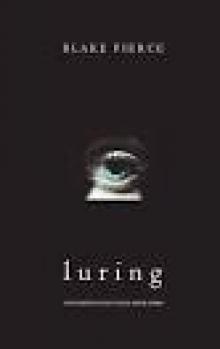 LURING
LURING If She Hid
If She Hid If She Fled
If She Fled Already Gone (A Laura Frost FBI Suspense Thriller—Book 1)
Already Gone (A Laura Frost FBI Suspense Thriller—Book 1) Vengeance in Vienna
Vengeance in Vienna Once Shunned
Once Shunned Left To Run
Left To Run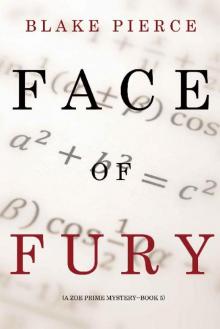 Face of Fury (A Zoe Prime Mystery--Book 5)
Face of Fury (A Zoe Prime Mystery--Book 5) Blake Pierce - Kate Wise - 5 - If She Fled
Blake Pierce - Kate Wise - 5 - If She Fled IF SHE RAN
IF SHE RAN Left to Envy (An Adele Sharp Mystery—Book Six)
Left to Envy (An Adele Sharp Mystery—Book Six) Silent Neighbor
Silent Neighbor Her Last Wish (A Rachel Gift FBI Suspense Thriller—Book 1)
Her Last Wish (A Rachel Gift FBI Suspense Thriller—Book 1) Almost Lost
Almost Lost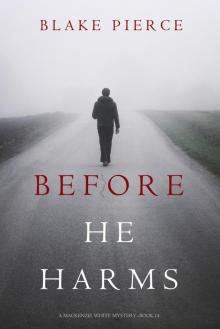 Before He Harms
Before He Harms Murder (and Baklava) (A European Voyage Cozy Mystery—Book 1)
Murder (and Baklava) (A European Voyage Cozy Mystery—Book 1) Left to Vanish (An Adele Sharp Mystery—Book Eight)
Left to Vanish (An Adele Sharp Mystery—Book Eight) THE PERFECT IMAGE
THE PERFECT IMAGE The Perfect Affair (A Jessie Hunt Psychological Suspense Thriller—Book Seven)
The Perfect Affair (A Jessie Hunt Psychological Suspense Thriller—Book Seven) Left To Die
Left To Die BEFORE HE LAPSES
BEFORE HE LAPSES Left to Prey (An Adele Sharp Mystery—Book Eleven)
Left to Prey (An Adele Sharp Mystery—Book Eleven) The Perfect Neighbor (A Jessie Hunt Psychological Suspense Thriller—Book Nine)
The Perfect Neighbor (A Jessie Hunt Psychological Suspense Thriller—Book Nine) Almost Dead
Almost Dead The Perfect Wife
The Perfect Wife The Perfect Smile
The Perfect Smile If She Saw
If She Saw Left To Die (An Adele Sharp Mystery—Book One)
Left To Die (An Adele Sharp Mystery—Book One)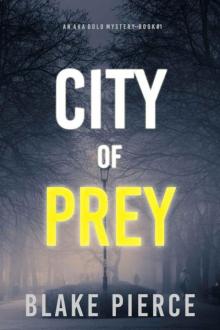 City of Prey: An Ava Gold Mystery (Book 1)
City of Prey: An Ava Gold Mystery (Book 1)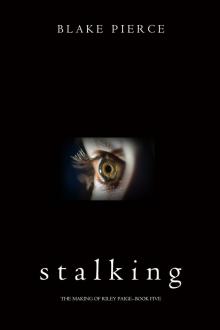 Stalking
Stalking Face of Darkness (A Zoe Prime Mystery—Book 6)
Face of Darkness (A Zoe Prime Mystery—Book 6) The Perfect Mistress (A Jessie Hunt Psychological Suspense Thriller—Book Fifteen)
The Perfect Mistress (A Jessie Hunt Psychological Suspense Thriller—Book Fifteen) Girl, Vanished (An Ella Dark FBI Suspense Thriller—Book 5)
Girl, Vanished (An Ella Dark FBI Suspense Thriller—Book 5) The Perfect Block
The Perfect Block Left to Fear (An Adele Sharp Mystery—Book Ten)
Left to Fear (An Adele Sharp Mystery—Book Ten) Almost Gone (The Au Pair—Book One)
Almost Gone (The Au Pair—Book One) The Perfect Facade (A Jessie Hunt Psychological Suspense Thriller—Book Twelve)
The Perfect Facade (A Jessie Hunt Psychological Suspense Thriller—Book Twelve) The Perfect Affair
The Perfect Affair Once Chosen (A Riley Paige Mystery—Book 17)
Once Chosen (A Riley Paige Mystery—Book 17) Girl, Alone (An Ella Dark FBI Suspense Thriller—Book 1)
Girl, Alone (An Ella Dark FBI Suspense Thriller—Book 1)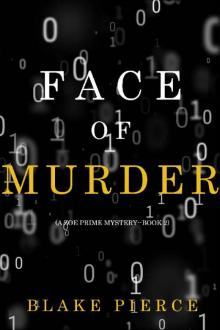 Face of Murder (A Zoe Prime Mystery—Book 2)
Face of Murder (A Zoe Prime Mystery—Book 2) The Perfect Mistress
The Perfect Mistress Crime (and Lager) (A European Voyage Cozy Mystery—Book 3)
Crime (and Lager) (A European Voyage Cozy Mystery—Book 3) Before He Harms (A Mackenzie White Mystery—Book 14)
Before He Harms (A Mackenzie White Mystery—Book 14)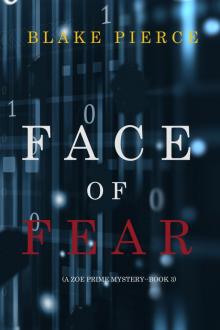 Face of Fear
Face of Fear Left to Murder (An Adele Sharp Mystery—Book Five)
Left to Murder (An Adele Sharp Mystery—Book Five) Left to Vanish
Left to Vanish The Perfect Secret (A Jessie Hunt Psychological Suspense Thriller—Book Eleven)
The Perfect Secret (A Jessie Hunt Psychological Suspense Thriller—Book Eleven) The Perfect Deceit (A Jessie Hunt Psychological Suspense Thriller—Book Fourteen)
The Perfect Deceit (A Jessie Hunt Psychological Suspense Thriller—Book Fourteen) Blake Pierce - The Making of Riley Paige - 4 - Taking
Blake Pierce - The Making of Riley Paige - 4 - Taking Death (and Apple Strudel) (A European Voyage Cozy Mystery—Book 2)
Death (and Apple Strudel) (A European Voyage Cozy Mystery—Book 2) THE PERFECT HOUSE
THE PERFECT HOUSE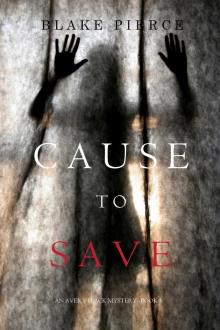 Cause to Save
Cause to Save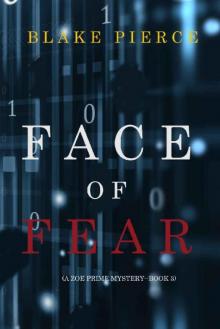 Face of Fear (A Zoe Prime Mystery—Book 3)
Face of Fear (A Zoe Prime Mystery—Book 3)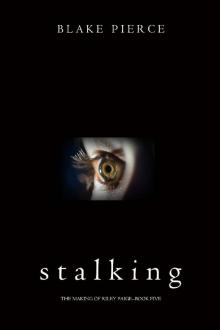 Stalking (The Making of Riley Paige—Book 5)
Stalking (The Making of Riley Paige—Book 5) A Neighbor's Lie
A Neighbor's Lie The Perfect Neighbor
The Perfect Neighbor Once Dormant
Once Dormant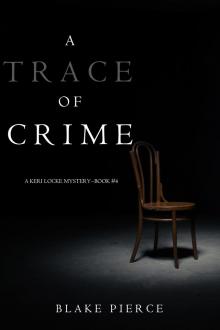 A Trace of Crime
A Trace of Crime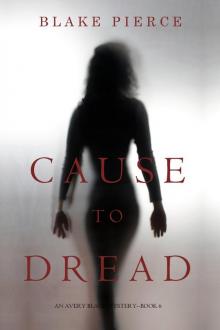 CAUSE TO DREAD
CAUSE TO DREAD Already Missing (A Laura Frost FBI Suspense Thriller—Book 4)
Already Missing (A Laura Frost FBI Suspense Thriller—Book 4) Waiting
Waiting If She Knew
If She Knew If She Feared (A Kate Wise Mystery—Book 6)
If She Feared (A Kate Wise Mystery—Book 6) Left To Run (An Adele Sharp Mystery—Book Two)
Left To Run (An Adele Sharp Mystery—Book Two) Left to Lapse (An Adele Sharp Mystery—Book Seven)
Left to Lapse (An Adele Sharp Mystery—Book Seven) If She Hid (A Kate Wise Mystery—Book 4)
If She Hid (A Kate Wise Mystery—Book 4) The Perfect Alibi (A Jessie Hunt Psychological Suspense Thriller—Book Eight)
The Perfect Alibi (A Jessie Hunt Psychological Suspense Thriller—Book Eight)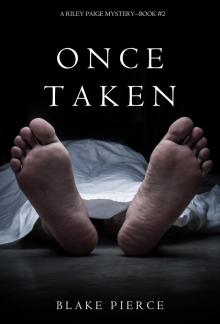 Once Taken
Once Taken Before He Envies
Before He Envies Before He Sins
Before He Sins Mackenzie White 07-Before He Sins
Mackenzie White 07-Before He Sins ONCE BOUND
ONCE BOUND Once Buried
Once Buried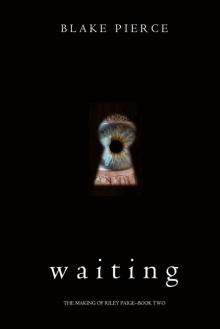 Waiting (The Making of Riley Paige—Book 2)
Waiting (The Making of Riley Paige—Book 2) Riley Paige 11-Once Buried
Riley Paige 11-Once Buried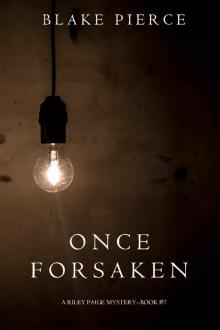 Once Forsaken (A Riley Paige Mystery—Book 7)
Once Forsaken (A Riley Paige Mystery—Book 7) Once Stalked (A Riley Paige Mystery—Book 9)
Once Stalked (A Riley Paige Mystery—Book 9) The Perfect Disguise (A Jessie Hunt Psychological Suspense Thriller—Book Ten)
The Perfect Disguise (A Jessie Hunt Psychological Suspense Thriller—Book Ten)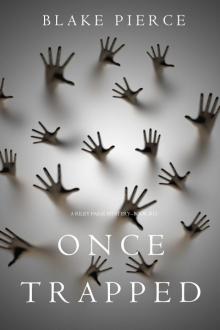 ONCE TRAPPED
ONCE TRAPPED Watching
Watching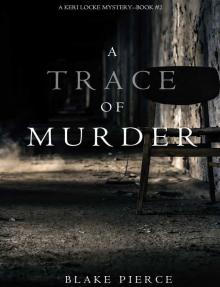 Keri Locke 02-A Trace of Muder
Keri Locke 02-A Trace of Muder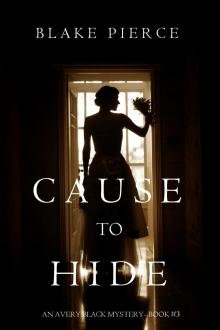 Cause to Hide
Cause to Hide Once Hunted
Once Hunted Cause to Kill (An Avery Black Mystery—Book 1)
Cause to Kill (An Avery Black Mystery—Book 1) Before He Preys
Before He Preys Once Pined
Once Pined A Trace of Hope
A Trace of Hope Once Craved (a Riley Paige Mystery--Book #3)
Once Craved (a Riley Paige Mystery--Book #3) Once Lured
Once Lured Before He Sees (A Mackenzie White Mystery—Book 2)
Before He Sees (A Mackenzie White Mystery—Book 2) Before he Kills (A Mackenzie White Mystery—Book 1)
Before he Kills (A Mackenzie White Mystery—Book 1)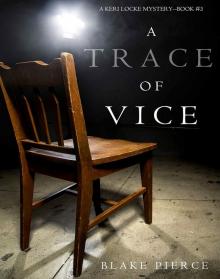 Keri Locke 03-A Trace of Vice
Keri Locke 03-A Trace of Vice Once Cold
Once Cold ONCE LOST
ONCE LOST Before He Takes
Before He Takes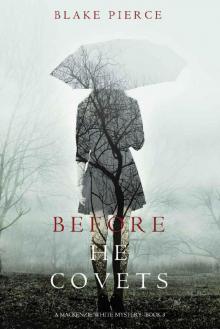 Before He Covets (A Mackenzie White Mystery—Book 3)
Before He Covets (A Mackenzie White Mystery—Book 3) BEFORE HE NEEDS
BEFORE HE NEEDS